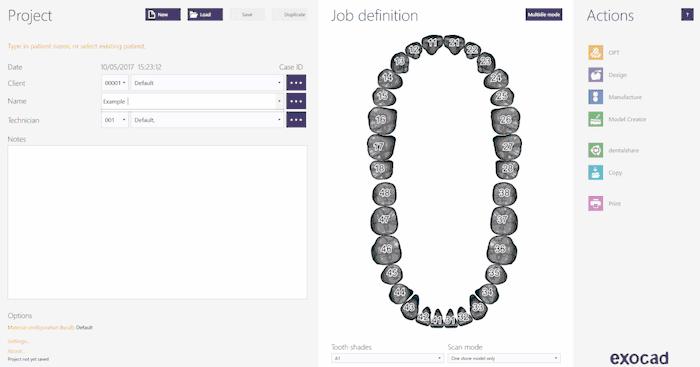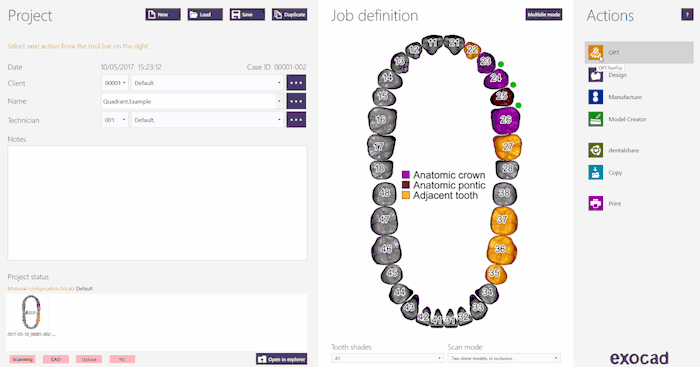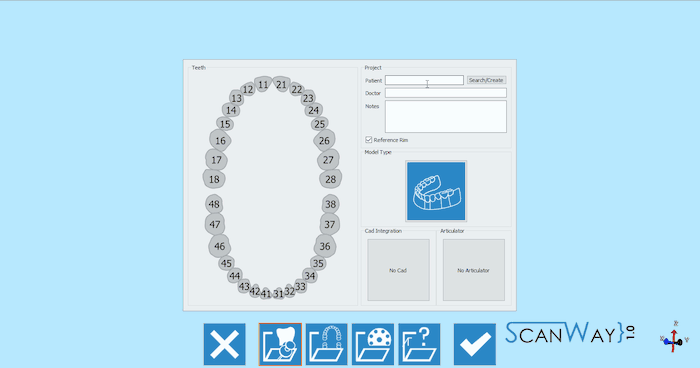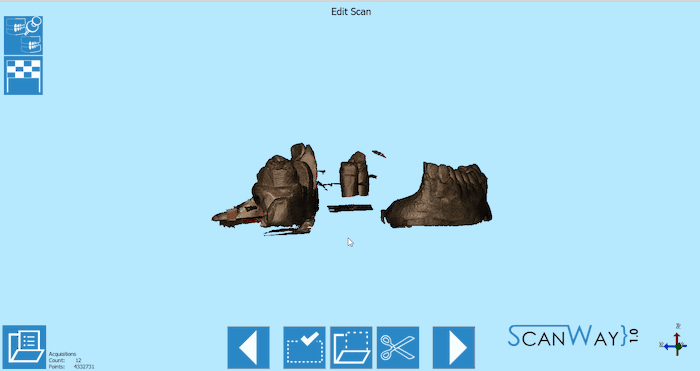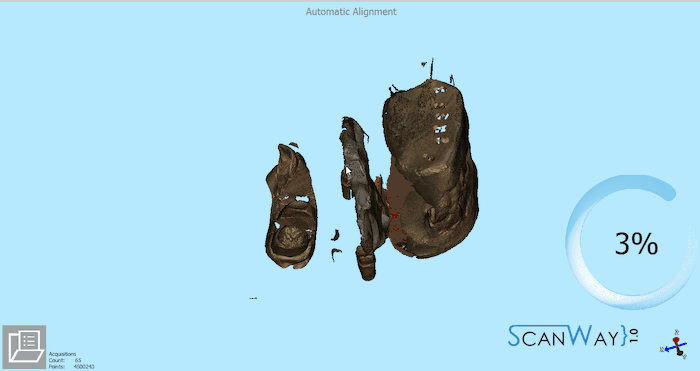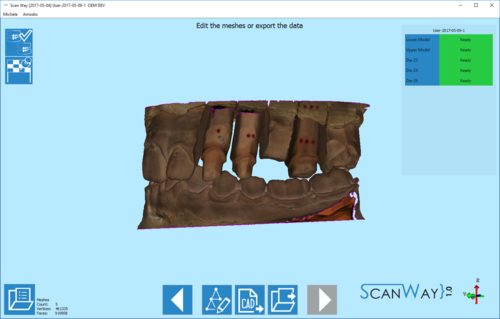Difference between revisions of "ExamplesQuadrant/it"
(Created page with "Tutti i progetti possono essere definiti nel software di scansione stesso, indipendentemente dal tipo di CAD che verrà poi utilizzato per la modellazione.") |
(Created page with "Avviare il software facendo doppio click sull'icona ScanWay sul desktop. Si aprirà la Pagina di Benvenuto; per creare il progetto cliccare sulla prima icona.") |
||
| Line 29: | Line 29: | ||
Tutti i progetti possono essere definiti nel software di scansione stesso, indipendentemente dal tipo di CAD che verrà poi utilizzato per la modellazione. | Tutti i progetti possono essere definiti nel software di scansione stesso, indipendentemente dal tipo di CAD che verrà poi utilizzato per la modellazione. | ||
| − | + | Avviare il software facendo doppio click sull'icona ScanWay sul desktop. Si aprirà la [[Splash|Pagina di Benvenuto]]; per creare il progetto cliccare sulla prima icona. | |
{{Screenshot|NewPrjIcon.png}} | {{Screenshot|NewPrjIcon.png}} | ||
Revision as of 09:35, 23 June 2017
In questa pagina è mostrata e spiegata la procedura guidata da seguire per scansionare 2 modelli di emiarcate in occlusione con 3 impianti, utilizzando il modulo Concept Quad di Open Technologies.
Questo modulo permette di scansionare emiarcate con fino a 4 monconi, in un progetto a 2 fase predefinito che permette di risparmiare fino alla metà del tempo.
QUESTO E' UN MODULO OPTIONAL OPEN TECHNOLOGIES: CHIEDI AL TUO RIVENDITORE COME OTTENERLO!!
Contents
Definizione del progetto in Exocad
Per creare questo progetto in Exocad, cliccare sull'icona DentalDB sul desktop, aprendo così il Gestore Progetti.
Inserire le informazioni del progetto, il tipo di ricostruzione che dovrà essere modellata e i parametri aggiuntivi. Per questo tipo di progetto assicurarsi che la Modalità Scansione sia impostata su Due modelli in occlusione; il tipo di modello verrà specificato in seguito nel software per avviare la procedura guidata corretta.
Per maggiori informazioni su come creare progetti in Exocad, visitare la pagina Exocad Wiki!
Di seguito la definizione di un progetto esempio:
Una volta che il progetto è stato definito è sufficiente cliccare su OPT nella sezione Azioni per avviare il software di scansione.
Il software mostrerà come prima cosa il progetto creato in Exocad.
Per attivare la procedura guidata corretta, cliccare sull'icona Tipologia di modello e selezionare l'opzione ![]() .
.
Cliccare il pulsante Accetta ![]() per salvare la modifica ed avviare il progetto.
per salvare la modifica ed avviare il progetto.
Definizione del progetto da ScanWay
Tutti i progetti possono essere definiti nel software di scansione stesso, indipendentemente dal tipo di CAD che verrà poi utilizzato per la modellazione.
Avviare il software facendo doppio click sull'icona ScanWay sul desktop. Si aprirà la Pagina di Benvenuto; per creare il progetto cliccare sulla prima icona.
For detailed information on how to define a project visit the specific page: Create a New Project.
Here is the definition of our demo project:
Both the project definitions described lead to the same wizard, which will be now followed step by step.
Step 1: Articulator Scanning
In this case, for articulator, is meant the quadrant tray occlusor, which can be scanned directly on the normal model holder.
The user can decide freely how to place the occlusor on the model holder, here are our suggestions.
Once the objects have been placed in the scanner (either the articulator or the models one on top of the other), the scan can be started with the Scan Button![]() . Once the scan is finished the result will be shown.
. Once the scan is finished the result will be shown.
For further information on the other available functions check the Scan Interface page.
Click ![]() to access the second step of the wizard.
to access the second step of the wizard.
Step 2: Quadrant Scan
This step develops in the usual phases.
Scan
For this step, all the elements need to be positioned as marked by the software in the Quadrant holder.
Click the Scan Button![]() to start the scan. Once the scan is finished the result will be shown.
to start the scan. Once the scan is finished the result will be shown.
Click ![]() to access the edit step.
to access the edit step.
Edit
In this case, the image has been trimmed using the base cut tool and clicking on the apply button.
BE CAREFUL NOT TO TRIM TOO MUCH, AS TO DO SO THE SOFTWARE MIGHT HAVE ISSUES DURING THE AUTOMATIC ALIGNMENT
Click ![]() to access the alignment phase.
to access the alignment phase.
Alignment
As for all scanned items, the software tries to align all the images to their reference. In this case the reference for all the scanned items is the articulator scan.
At the end of the alignment the results are shown. To learn more on the automatic alignment and the manual procedure visit our Alignment Interface page.
Click ![]() to access the last step of the wizard.
to access the last step of the wizard.
Step 3: Mesh Generation and Export
At this point the software immediately starts mesh generation. The meshes can be edited and exported individually or as a unique image. To learn more about mesh editing visit our Mesh Tools page.
Click on the Export Button ![]() to export to CAD.
to export to CAD.
If the project has been started from Exocad, the CAD will automatically open and the design can be started immediately. Otherwise the software will ask the user how to export the file.
